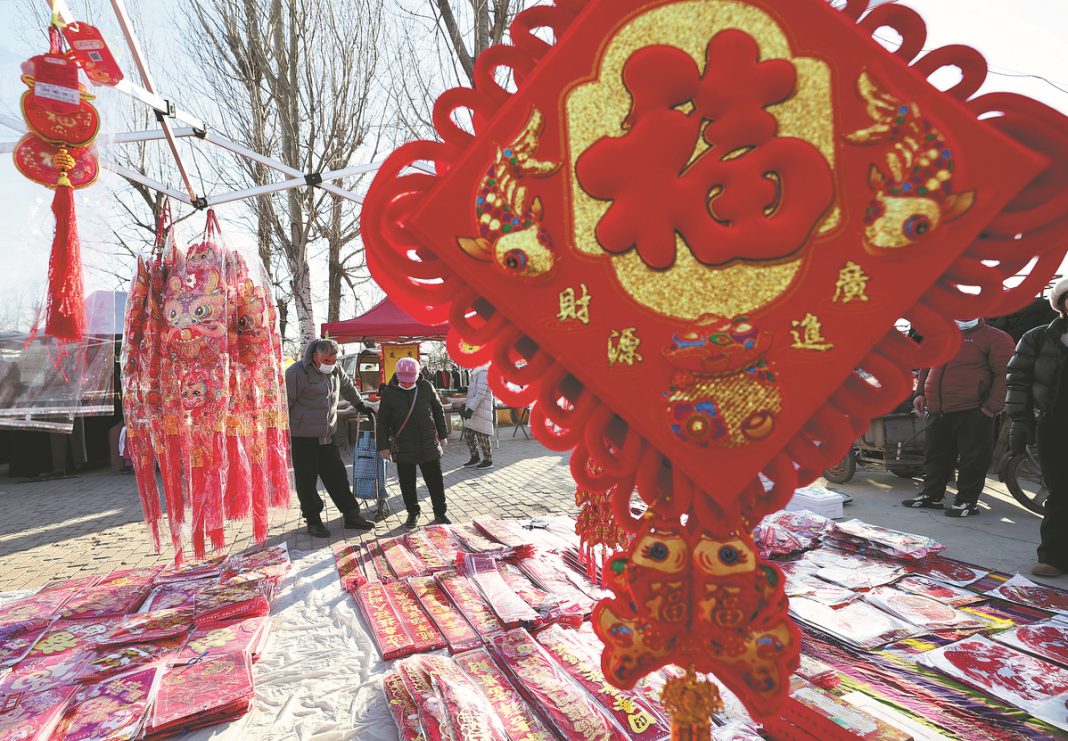BEIJING: Guo Liping, 50, has been regularly visiting the Shahe Market in Beijing’s Changping district for a decade. He said he is a big fan of the vibrant open-air market because it helps him unwind and stay passionate about life.
The market is so popular among both Changping’s residents and visitors from other districts that shoppers jostle for elbowroom on normal days, and now with the Year of the Dragon here, the crowds are swelling as more vendors have set up shop to sell Spring Festival decorations such as lanterns, couplets and red envelopes, Guo said.
“Shahe Market is the place to be if one wants to get into the festive mood. Look how happy people are when choosing Spring Festival decorations. See how their faces light up when they land a good deal. Simple pleasures don’t cost much here,” he said, in between bites of his hot sesame bun with sausages.
As delicious smells wafted up from the food stalls on a cold winter morning, Guo, who works in the finance sector, said: “For many people like me, coming to the market is therapeutic, and I am not exaggerating a bit. As soon as I walk into the market, I feel very relaxed. It’s totally worth the one-hour drive.”
The Shahe Market in suburban Beijing covers an area of 120,000 square meters and is among the Chinese capital’s largest open-air markets. It attracts thousands of shoppers when it opens every Wednesday, Friday and Sunday.
The unique selling point of the market is that people find everything they need here — and more, Guo said.
The market not just offers daily necessities such as fruits and vegetables, street food and antique items, one might also spot vendors selling katydids, which are large, typically green, long-horned nocturnal grasshoppers that are kept as pets by many people.
“Everything is so down-to-earth here, which is in stark contrast to the modern city life in Beijing. It is a fond reminder of my childhood days- the good times I spent with my family at the open-air markets near my native village in Gansu province,” Guo said.
Daji, which translates as a “big market or fair”, is typically held on specific dates based on the lunar calendar, such as dates ending with five or seven.
It is also a common practice to hold daji ahead of or during traditional Chinese holidays such as the Spring Festival holiday. Visiting such fairs is popularly termed as ganji, which literally means “chasing the market”.
These markets or fairs evolved from the folk custom of trading in goods, which can be traced back to the Han dynasties (206 BC-AD 220). –The Daily Mail-China Daily news exchange item






